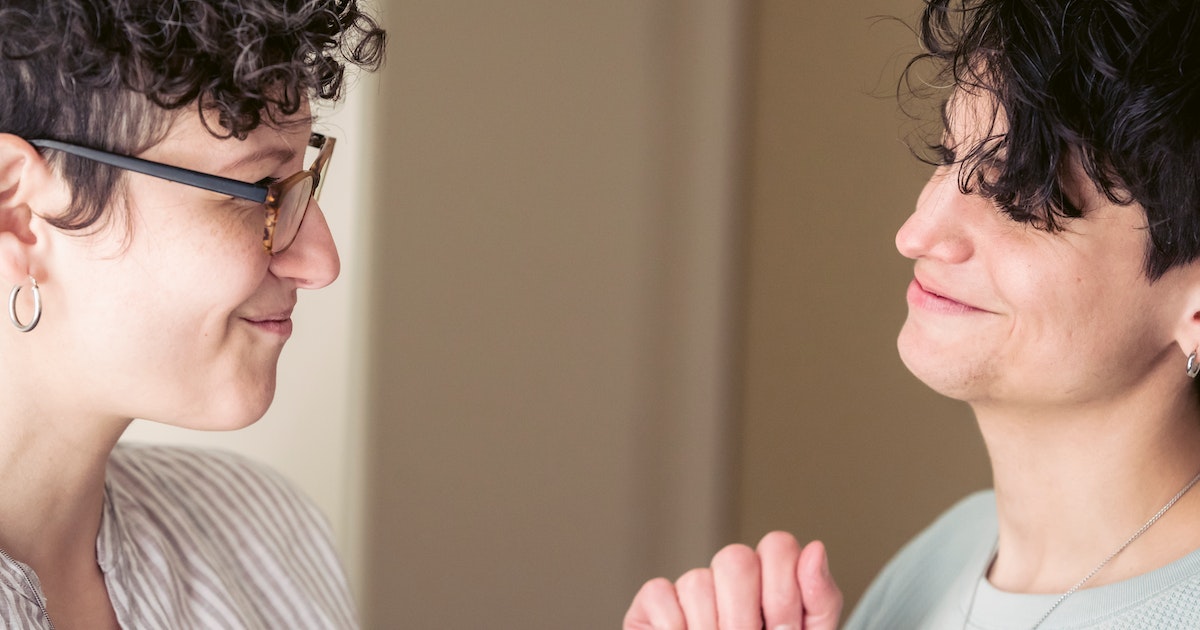The month of October is Depression Awareness Month, a time to increase our understanding of the disorder, challenge stereotypes and educate people on the overall impact of mental health. To support these efforts, different organizations host live and online events, create informational content and promote awareness regarding depression.
While we’ve come a long way in our understanding of depression, many misconceptions still exist. For example, a 2018 survey found that 30 percent of people believe a ‘weak personality’ causes depression. But depression is not a weakness or fault. Even people with a ‘strong personality’ can develop depression.
In honor of Depression Awareness Month, here are five interesting facts to know about the disorder.
1. Depression has a high degree of heritability.
Depression is a heritable condition, though researchers aren’t sure how this disorder is passed through genes. It’s likely that certain combinations of genes can raise the risk for developing depression. Interestingly, a British research team isolated a gene - 3p25-26 - that appears to be prevalent in multiple family members with depression.
Scientists believe that genes make up 40 percent of a person’s risk for depression, while 60 percent are due to environmental and other factors. Therefore, if you have close family members with depression, you are more likely to develop the disorder as well.
2. There are different types of depression.
Depression is a mood disorder that causes persistent sadness and loss of interest in hobbies and activities. It can also cause problems with memory, thinking, eating and sleeping. It’s normal to feel sad at times, but depression is different in that symptoms happen daily and last for more than two weeks.
The DSM-5 classifies depression disorders as the following:
- Clinical depression (major depressive disorder). Feeling sad, low or worthless most days. Other symptoms include sleep problems, loss of interest in activities and a change in appetite. This is the most common and severe form of depression.
- Seasonal affective disorder (SAD). This type of major depressive disorder typically occurs in the fall and winter.
- Prenatal and postpartum depression. Prenatal depression happens during pregnancy, and postpartum depression happens in the weeks and months after delivering a baby.
- Atypical depression. This disorder has atypical symptoms, such as an increased appetite and temporary mood improvements.
- Persistent depressive disorder (PDD). PDD is more mild or moderate in nature and lasts for two or more years. Symptoms include fatigue, feelings of hopelessness, lack of appetite and trouble sleeping.
- Disruptive mood dysregulation disorder (DMDD). DMDD causes outbursts of anger in children. Symptoms are typically seen by age 10.
- Premenstrual dysphoric disorder (PMDD). With PMDD, women experience PMS symptoms along with mood symptoms, such as anxiety, depression and irritability. These symptoms can be severe, but generally ease up when your period starts.
- Depressive disorder due to another medical condition. There are many different disorders that can cause depression, such as thyroid conditions, heart disease and Parkinson’s disease. Treating the underlying condition can improve depression symptoms.
3. Cognitive therapy is just as effective as antidepressant medication.
Research suggests that the ideal treatment for depression is a combination of therapy and medication. But it’s important to recognize just how effective cognitive therapy is, and it even appears to reduce the risk of relapse after discontinuing antidepressant medications.
The benefit in therapy is that it doesn't just treat the symptoms of depression like antidepressants do. It can also teach you about yourself, how your brain processes thoughts and emotions and how to manage stressful situations in the future. This is why therapy is offered at most behavioral health treatment centers in Lehigh Valley.

4. Treatment is available for mild, moderate and severe depression.
Many people assume that treatment is only available for severe cases of depression, but this is not true. Depression can be treated at all stages. In fact, the less severe your depression is, the easier it is to treat. This is why it’s important to recognize depression and be open to seeking treatment.
The role of therapy is to ease negative feelings and help identify and change harmful patterns of behavior. You’ll work on developing coping skills, managing stress, processing trauma and building self-esteem. As for self-care, nothing supports a healthy mind and body more than eating nutritious meals, exercising, getting enough rest, spending time with friends and family and doing the activities you love.
Mild to moderate depression may also benefit from medication, such as antidepressants, SSRIs, SNRIs and mood stabilizers. Severe depression will likely need a combination of both medication and therapy. It can take time to see results from medication, and you may need to try a few different options before finding one that works for you.
5. Depression is not the same as sadness or grief.
We all feel sad from time to time, especially when going through challenging times in our lives such as the loss of a loved one or the end of a relationship. These situations are life-changing and can cause you to feel sad for a long time. With so much emphasis on depression, some people can mistakenly assume they are suffering from depression, when really, they are not.
There is a clear difference between depression and sadness/grief:
- Grief comes in waves. It’s normal to have positive memories mixed in with pain. With depression, mood and pleasure are decreased for at least two weeks.
- Self-esteem is typically maintained in grief. In depression, it’s common to have persistent feelings of worthlessness.
- People who are grieving often feel better when thinking about joining their loved one. But depression is more focused on ending life due to feeling undeserving or unable to cope.
Dual Diagnosis Treatment in Pennsylvania
Even though we’ve come a long way in our understanding of depression, there are still many myths and misconceptions that people have about the condition. Hopefully, these five interesting, lesser known facts have helped you better understand depression and its impact on people.
Depression is not curable, but it is treatable with a combination of therapy, medication and self-care. Without treatment, depression is likely to get worse and cause other problems, such as substance use. To start your journey to recovery, contact Recovery Cove today at 484-549-COVE. We offer integrated treatment for substance use and depression under one roof.






